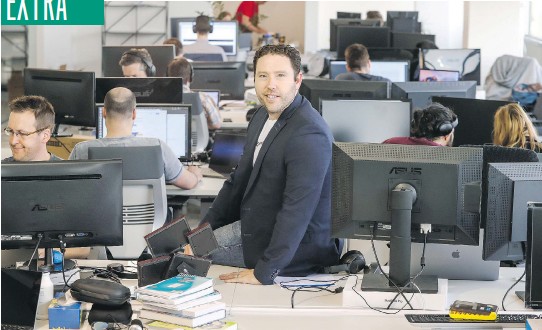Montreal is positioning itself to become a world centre of artificial intelligence with impressive amounts of cash flowing into academia, public-private partnerships, research labs and startups. Bertrand Marotte reports on some of the big brains behind the suddenly hot trend.
It might seem like an ambitious goal, but key players in Montreal’s rapidly growing artificial intelligence sector are intent on transforming the city into a Silicon Valley of AI.
Certainly, the flurry of activity these days indicates that AI in the city is on a roll. Impressive amounts of cash have been flowing into academia, public-private partnerships, research labs and startups active in AI in the Montreal area.
And hopes are high that a threeday conference starting May 24 — AI Forum — will help burnish Montreal’s reputation as one of the world’s emerging AI advanced research centres and top talent pools in the suddenly very hot tech trend.
Topics and issues on the agenda include the evolution of AI in Montreal and the transformative impact AI can have on business, industry and the economy.
For example, researchers at Microsoft Corp. have successfully developed a computing system able to decipher conversational speech as accurately as humans do. The technology makes the same, or fewer, errors than professional transcribers and could be a huge boon to major users of transcription services like law firms and the courts.
Setting the goal of attaining the critical mass of a Silicon Valley is “a nice point of reference,” said tech entrepreneur Jean-François Gagné, co-founder and chief executive officer of Element AI, an artificial intelligence startup factory launched last year.
“It’s ambitious,” allowed Gagné, one of the keynote speakers at the AI Forum, held in partnership with the annual C2 Montréal international gabfest.
The idea is to create a “fluid, dynamic ecosystem” in Montreal where AI research, startup, investment and commercialization activities all mesh productively together, said Gagné, who founded Element with researcher Nicolas Chapados and Université de Montréal deep learning pioneer Yoshua Bengio.

